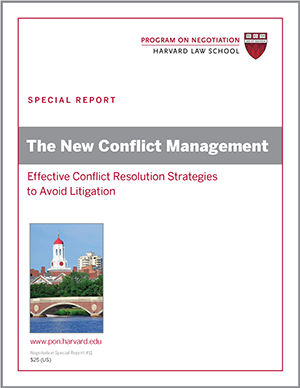
They say it pays to keep your friends close and your enemies closer, but in business negotiation, keeping your enemies—or competitors—close could end you up in court, as Apple’s recent encounter with the U.S. Department of Justice suggests.
The story begins back in 2007 when, unhappy with Amazon’s low, flat price of $9.99 for e-books, five major U.S. publishers negotiated a new business model for e-book pricing with Apple, which was getting ready to launch the iPad.
Under the prevailing wholesaling model, publishers sold their books and e-books to retailers like Amazon, which could then set whatever price they liked. Apple and the five publishers agreed to switch to a so-called agency model, which would allow the publishers to set their own prices for e-books in exchange for giving Apple a 30% sales commission. At least one of the publishers then upped the ante by threatening to delay the release of its digital editions to Amazon unless it switched to an agency model. Amazon reluctantly agreed, and e-book prices rose across the industry to about $14.99.
The publishers and Apple claimed that their goal was to increase competition in the e-book market by opening up alternatives to Amazon’s Kindle reader. But the U.S. Department of Justice didn’t see it that way and accused the parties of colluding to artificially raise e-book prices. The five publishers reached a settlement with the government; Apple did not.
In U.S. district court testimony, Apple and publishing executives portrayed the publishers’ negotiations with Apple on e-books as a typical competitive, distributive negotiation in which each side pushed hard for concessions. But Department of Justice lawyers argued that the publishers communicated with one another through Apple and shared information about both Amazon and Apple. On July 10, a U.S district judge ruled that Apple and the publishers had indeed engaged in a price-fixing conspiracy that resulted in consumers paying more for e-books. Apple vowed to appeal the verdict.
The question of whether the parties colluded is a complex one. But the story serves as a reminder that, in their zeal to reach a mutually beneficial negotiated agreement, negotiators often forget the importance of considering how parties away from the table—in this case, consumers—will be affected by the final outcome of their deal.
Conflict Resolution Strategy
Here are three pieces of advice for negotiators seeking to avoid the legal and ethical trouble that Apple and the five publishers faced following their deals.
1. Look beyond the negotiating table.
During an integrative bargaining process, negotiators should think about who, other than the parties involved, might be affected by whatever agreement you reach. This list might include your competitors, consumers, and society at large. Is your deal likely to create net value for society? If not, you have an ethical and perhaps legal responsibility to find ways to reduce the potential negative effects on outsiders. (What is principal agent theory and what are some behind-the-table concerns negotiators should consider when drafting an agreement? To find out more, please read Conflict Resolution – Do You Need a Broker?).
2. Study relevant laws and standards.
Don’t assume that you or your counterpart has a firm grasp of which laws and regulations are likely to apply to your agreement. Be sure to consult with your lawyers throughout the negotiation process. A good legal team will scrutinize your predictions of how an agreement will unfold, recognizing that you may be overly optimistic. (For tips on avoiding deal-drafting mistakes, see the cover story “Negotiating in the Heat of the Moment” in the October 2013 issue of the Negotiation newsletter.)
3. Err on the side of caution.
Experts disagree about whether Apple broke the law in its negotiations with the publishers, but in the end, only one opinion truly mattered: that of the judge. Skirting up to the edge of the law is a risky practice.
Give yourself a wide berth by avoiding deal terms that could even suggest your agreement will result in a net loss for the marketplace at large.
Adapted from the article “When Negotiation Looks Like Collusion” in the October 2013 issue of the Negotiation newsletter.
Originally published on September 17, 2013.




